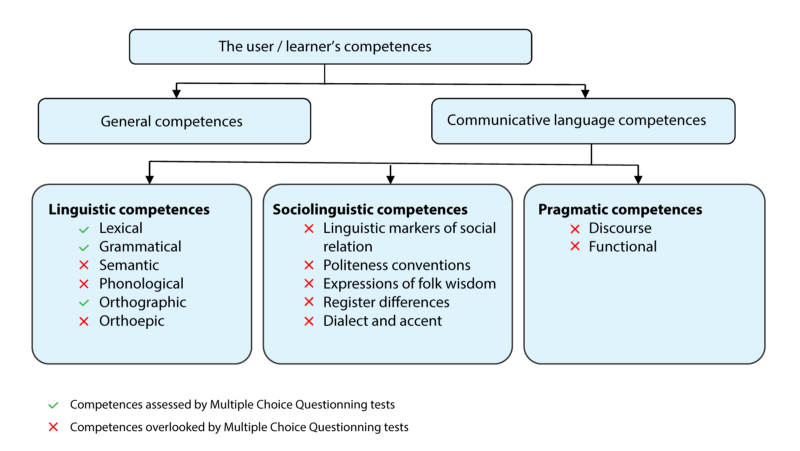Language tests today don’t make the cut!
Language tests have a bad reputation.
Nothing makes job candidates hit the panic button like a long and tedious standardized test designed to assess their understanding of a foreign tongue. Recruiters, too, criticize the old-school format and inability to see language skills in action.
What are job candidates to do? Pencil in answer bubbles ad nauseum? Make do with low-quality recordings and outdated test equipment?
Neither is the situation ideal for recruiters; unfortunately, many have seen firsthand the discrepancy that can occur between an exemplary test score and unsatisfactory on-the-job language skills.
This inconsistency has led to managers and HR professionals considering test scores merely as a ‘weeding out’ tool, before following up with a language interview to verify the candidates’ real language competence.
How is it that a multiple-hour long exam gives insufficient results, and a real understanding of a job-seeker’s language level can be determined during a five-minute long interview? A recruitment process works best when it is efficient, and clearly today’s language tests are anything but.
It’s just the tip of the iceberg…
Learning a foreign language is a complex process that involves a combination of various competences. Traditionally, foreign language teaching methods focus on academic concepts such as grammar, spelling and vocabulary- which are respectively tested by current language evaluation methods.
Alas, these concepts only make up the tip of the iceberg. More often than not, oral comprehension, verbal expression, and pronunciation skills fall by the wayside. Research carried out by the European Council, in conjunction with the Common European Framework of Reference for Languages, demonstrates a more complete synthesis of skills that take part in communication (Council of Europe 2011, 11):
This graphic highlights the inconsistencies between necessary language skills and those tested by typical standardized language exams. Pragmatic capabilities, such as the ability to adapt tone or language according to social contexts, or familiarity with rules of politeness, are particularly neglected by said language tests- a shame, because these skills can make all the difference when communicating with a native speaker.
The solution?
Interviews are often used as a substitute for traditional language evaluation methods. Through spontaneous interaction, the recruiter achieves a clearer understanding of the candidate’s language skills. However, the challenge lies in assuring an interview’s objectivity. Interviewing one candidate is feasible, but increase the number of interviewees and it becomes tricky to compare results afterwards. Besides, interviews can be expensive, time-consuming and are unable to assess written language capabilities. What the business world needs, then, is a test that doubles as a language interview!
Since 2015, Pipplet has carried out the mission of developing innovative solutions for language evaluation. Its online scenario-based exam is evaluated by real native-language experts, providing a thorough and comprehensive qualitative analysis of language skills. The best part? Candidates take the exam in thirty minutes or less.
Given the current state of affairs of foreign language evaluation, I’d say that sounds like a win-win.
Related stories











